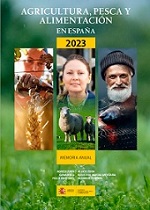- Home
- Ministry Mapa
- Ministry abroad
- Brexit
Fisheries sector
What are the consequences of the UK's exit from the European Union on fisheries?
On 1 January 2021, the UK abandoned the Common Fisheries Policy −the joint EU legal framework that provides Member States with equal access to EU waters, as well as stable arrangements for quota sharing and sustainable resource management.
By abandoning the Common Fisheries Policy, the UK becomes an independent coastal state. This changes the landscape of fisheries management in the Northeast Atlantic Ocean and in the North Sea.
The EU and the UK will be responsible, under international law, for the joint management of approximately 100 shared fish stocks.
The waters of the United Kingdom (i.e., the territorial sea up to 12 nautical miles and the adjacent exclusive economic zone up to 200 nautical miles) will cease to be part of EU waters. In the absence of any provision to the contrary, access to each other's waters would no longer be guaranteed.
What does the Trade and Cooperation Agreement between the European Union and the United Kingdom cover in fisheries matters?
The Agreement establishes a new framework for the joint and sustainable management of one hundred shared fish stocks in EU and UK waters, in full compliance with the rights and obligations of each of the parties as independent coastal states and on the basis of the best scientific advice available.
It contains new provisions on reciprocal access to waters in the Exclusive Economic Zone and in the 6-12 mile nautical zone, as well as new stable arrangements for sharing quotas.
Will EU fishing fleets continue to have the same level of access to UK waters?
They will until the year 2026, although, since the UK is an independent coastal state, it may also be subject to technical conditions.
Once the 5.5-year adjustment period has ended (01/01/2021- 06/30/2026), during which the current rules on reciprocal access will be maintained, the agreement provides for annual consultations to establish the level and conditions of reciprocal access to the Exclusive Economic Zones and territorial waters of each Party.
Will they still have access to the same quota levels?
There will be gradual changes in the distribution of the Total Allowable Catches (TACs) quotas for some of the shared stocks up to 2026 between the EU and the UK, which also include stocks managed trilaterally (e.g. with Norway) or in multilateral environments.
These changes will take into account the need to ensure the sustainable management of marine resources and to preserve the activities and livelihoods of the fishing communities that depend on these waters and resources.
The agreed quota distribution keys are established in the annexes to the Agreement, which provides long-term transparency, as they are initially expected to be valid beyond 2026.
Why do the parties need annual consultations?
The EU and the UK will hold annual consultations to jointly determine the Total Allowable Catches (TACs) for each stock, i.e. the maximum limits for a stock (or stocks) of a particular description that can be caught during a given period. This is an international obligation, derived from the United Nations Convention on the Law of the Sea (UNCLOS) and other treaties, of cooperation on the management of shared fish stocks.
This will be done taking into account scientific advice on conservation needs, as well as relevant socio-economic factors. These "TACs" will be assigned to each party in accordance with the distribution keys established in the agreement. However, if the parties do not agree on a TAC, a provisional TAC corresponding to the level advised by the International Council for the Exploration of the Sea (ICES) will be defined until an agreement is reached.
Access to the waters of others will be granted to take advantage of available fishing opportunities. After a period of adjustment, in which the current full access will be maintained, the levels and conditions of reciprocal access to water will be decided in annual consultations.




